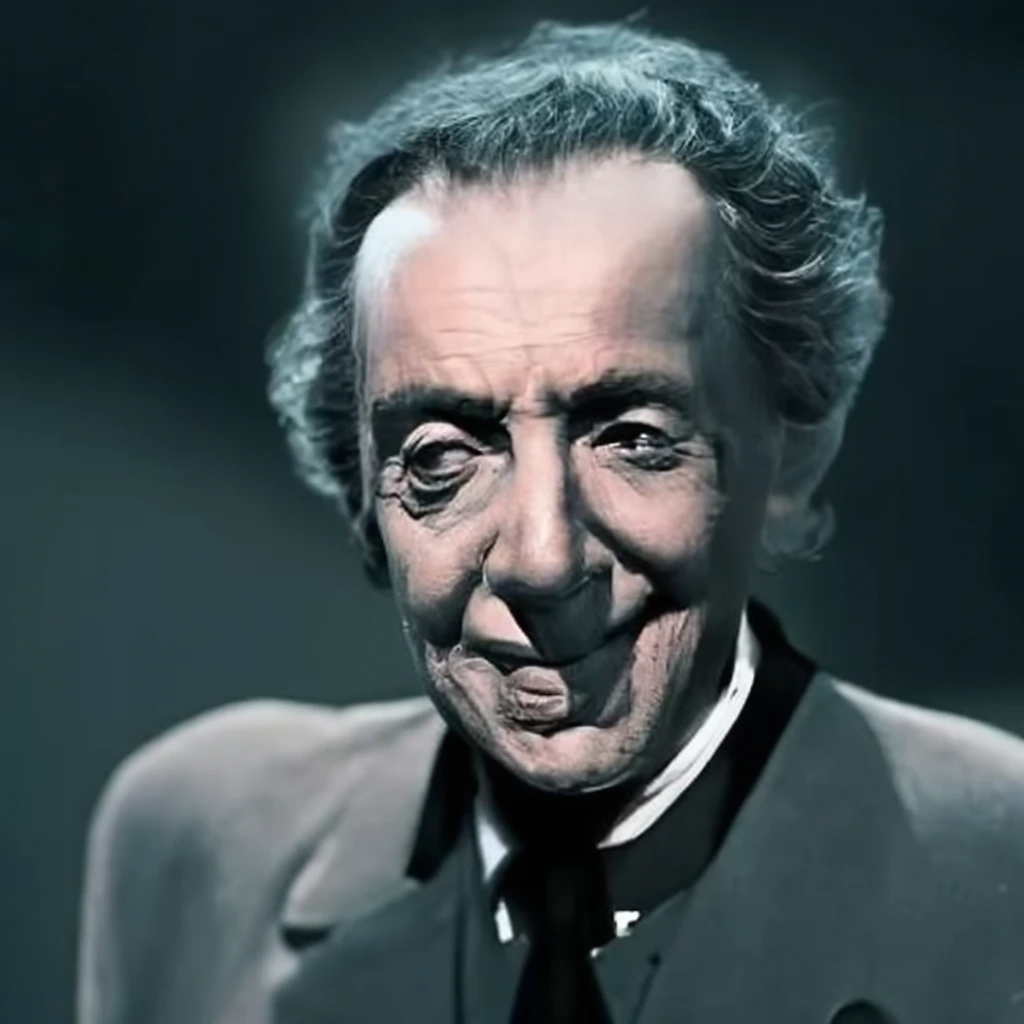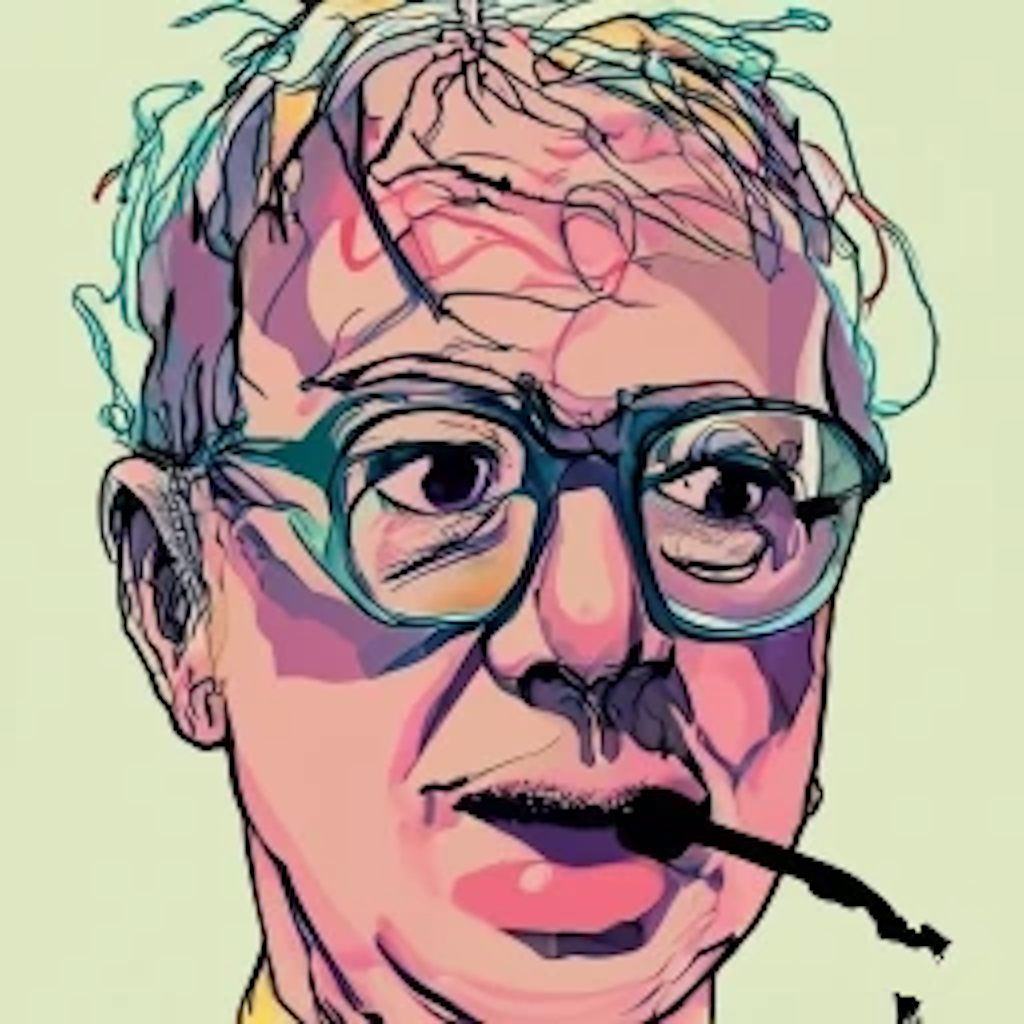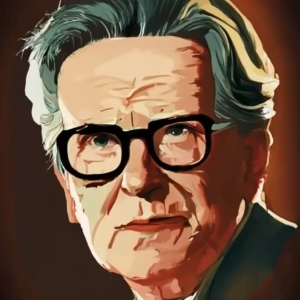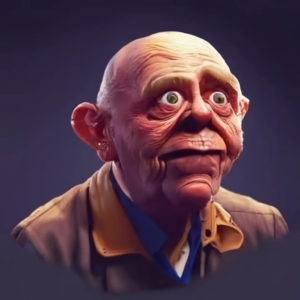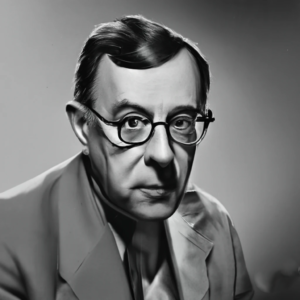Introduction
Maurice Jarre stands as a luminary in the realm of film music, his compositions weaving through cinematic landscapes with emotive depth and captivating melodies. Born on September 13, 1924, in Lyon, France, Jarre embarked on a musical journey that would resonate across generations of moviegoers. His illustrious career spans over five decades, during which he crafted scores for a myriad of iconic films, leaving an indelible mark on the world of cinema.
Jarre’s musical prowess transcends mere accompaniment; it serves as a narrative force, enhancing the visual storytelling of the films it accompanies. His ability to evoke profound emotions and enhance cinematic moments through his compositions earned him widespread acclaim and numerous accolades, including three Academy Awards.
From the vast deserts of Lawrence of Arabia to the poignant landscapes of Doctor Zhivago, Maurice Jarre’s music has become inseparable from the cinematic masterpieces it accompanies. With a blend of classical orchestration, ethnic influences, and innovative techniques, Jarre’s compositions transport audiences to distant worlds, evoke nostalgia, and provoke contemplation.
As we delve into the life and works of Maurice Jarre, we uncover not only a maestro of film scores but also a visionary artist whose sonic tapestries continue to resonate with audiences worldwide. In this exploration, we traverse the early years that shaped his musical sensibilities, his artistic evolution, career milestones, and the enduring legacy he leaves behind. Join us on a journey through the captivating world of Maurice Jarre’s music, where each note tells a story and each composition leaves an indelible impression on the cinematic landscape.
Early Years and Influences
Maurice Jarre’s journey into the realm of music began amidst the rich cultural tapestry of Lyon, France, where he was born on September 13, 1924. Raised in a family with a deep appreciation for the arts, Jarre was exposed to music from a young age. His father, André Jarre, was a renowned radio producer and composer, whose passion for music undoubtedly influenced Maurice’s early musical inclinations.
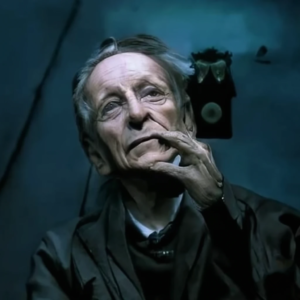 Jarre’s formal musical education commenced at the Conservatoire de Paris, where he honed his skills in composition, orchestration, and conducting. Under the tutelage of eminent composers such as Arthur Honegger and Olivier Messiaen, Jarre developed a keen understanding of musical theory and technique, laying the foundation for his future success.
Jarre’s formal musical education commenced at the Conservatoire de Paris, where he honed his skills in composition, orchestration, and conducting. Under the tutelage of eminent composers such as Arthur Honegger and Olivier Messiaen, Jarre developed a keen understanding of musical theory and technique, laying the foundation for his future success.
During his formative years, Jarre’s musical horizons were broadened by encounters with various musical styles and traditions. His exposure to the works of classical masters, including Beethoven, Mozart, and Debussy, instilled in him a reverence for tradition while igniting his creativity.
However, it was the eclectic sounds of the world around him that truly shaped Jarre’s musical identity. The vibrant streets of Paris, with their bustling cafes and diverse cultural milieu, provided a melting pot of influences that found their way into his compositions. From the haunting melodies of Eastern Europe to the rhythmic beats of Africa, Jarre absorbed the sounds of the world with a voracious appetite, weaving them into the fabric of his music.
In addition to his formal training, Jarre’s immersion in the avant-garde artistic movements of the time, such as surrealism and existentialism, imbued his compositions with a sense of innovation and experimentation. He embraced new technologies and musical techniques, pushing the boundaries of conventional orchestration to create bold and innovative soundscapes.
Jarre’s early years were marked by a restless spirit of exploration and a thirst for creative expression. His diverse influences, combined with his innate talent and rigorous training, laid the groundwork for a career that would redefine the landscape of film music. As we delve deeper into his artistic evolution, we uncover the transformative experiences and pivotal moments that shaped Maurice Jarre into the visionary composer he would become.
Artistic Evolution and Musical Identity
Maurice Jarre’s artistic evolution is a testament to his versatility and ingenuity as a composer. From his early forays into classical composition to his groundbreaking work in film music, Jarre’s journey is marked by a continual quest for innovation and expression.
In the early stages of his career, Jarre’s musical identity was shaped by his training in classical music and his exploration of avant-garde techniques. Drawing inspiration from a diverse array of musical styles and traditions, he forged a unique artistic voice that defied categorization. His compositions, characterized by lush orchestrations, evocative melodies, and intricate harmonies, captivated audiences and critics alike.
However, it was in the realm of film music that Jarre truly came into his own as a composer. His collaboration with director David Lean on the epic film “Lawrence of Arabia” marked a turning point in his career, earning him widespread acclaim and recognition. Jarre’s evocative score, with its sweeping melodies and Middle Eastern influences, captured the grandeur and complexity of the desert landscape, elevating the film to cinematic masterpiece.
Building on the success of “Lawrence of Arabia,” Jarre continued to push the boundaries of film music, experimenting with new sounds and techniques to create immersive sonic landscapes. His scores for films such as “Doctor Zhivago,” “A Passage to India,” and “Witness” showcased his ability to evoke emotion, enhance narrative, and transport audiences to distant worlds.
Throughout his career, Jarre remained committed to exploring new avenues of expression and pushing the limits of his craft. From his collaborations with directors such as John Huston and Peter Weir to his work in the realm of concert music and opera, he continued to evolve as an artist, constantly seeking out new challenges and opportunities for growth.
Jarre’s musical identity is defined by its fluidity and adaptability, reflecting his willingness to embrace new ideas and push the boundaries of convention. Whether scoring epic historical dramas or intimate character studies, his music resonates with a timeless quality that transcends genre and era.
As we reflect on Maurice Jarre’s artistic evolution, we are reminded of the transformative power of music to evoke emotion, provoke thought, and inspire change. His enduring legacy serves as a testament to the enduring power of creativity and the boundless possibilities of the human imagination.
Career Milestones and Achievements
Maurice Jarre’s illustrious career is punctuated by numerous milestones and achievements, each marking a significant chapter in his journey as a composer. From his early successes in French cinema to his groundbreaking work in Hollywood, Jarre’s impact on the world of film music is undeniable.
One of Jarre’s earliest career milestones came in 1952 with the composition of his first film score for the French film “Grand Gala.” This marked the beginning of his prolific career in cinema, during which he would go on to collaborate with some of the most celebrated directors of his time.
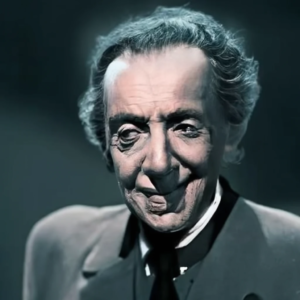 However, it was his collaboration with director David Lean on the epic film “Lawrence of Arabia” in 1962 that propelled Jarre to international acclaim and solidified his reputation as a master composer. The sweeping grandeur of Jarre’s score, with its iconic main theme and evocative Middle Eastern motifs, earned him his first Academy Award for Best Original Score.
However, it was his collaboration with director David Lean on the epic film “Lawrence of Arabia” in 1962 that propelled Jarre to international acclaim and solidified his reputation as a master composer. The sweeping grandeur of Jarre’s score, with its iconic main theme and evocative Middle Eastern motifs, earned him his first Academy Award for Best Original Score.
Following the success of “Lawrence of Arabia,” Jarre continued to garner accolades for his work in film, earning two more Academy Awards for Best Original Score for his compositions for “Doctor Zhivago” in 1965 and “A Passage to India” in 1985. These achievements cemented Jarre’s status as one of the preeminent composers in the world of cinema.
In addition to his Academy Awards, Jarre received numerous other honors and awards throughout his career, including Golden Globe Awards, BAFTA Awards, and Grammy Awards. His contributions to film music were further recognized with prestigious lifetime achievement awards, such as the Golden Bear Lifetime Achievement Award at the Berlin International Film Festival and the Max Steiner Film Music Achievement Award.
Beyond his work in film, Jarre’s legacy also includes his contributions to the world of concert music and opera. His compositions, which range from symphonic works to chamber music, reflect his mastery of form and his ability to evoke emotion through music.
In recognition of his extraordinary talent and lasting impact on the world of music, Maurice Jarre was honored with a star on the Hollywood Walk of Fame in 1993. His name remains synonymous with excellence in film music, and his influence continues to be felt by composers and filmmakers around the globe.
As we reflect on Maurice Jarre’s career milestones and achievements, we are reminded of the transformative power of music to inspire, uplift, and unite audiences across generations. His legacy serves as a testament to the enduring power of creativity and the timeless appeal of great art.
Social and Cultural Impact
Maurice Jarre’s music transcends the confines of the silver screen, making a profound impact on both social and cultural landscapes. Through his evocative compositions, Jarre not only enhanced cinematic storytelling but also served as a catalyst for dialogue, reflection, and understanding.
One of the most notable aspects of Jarre’s social and cultural impact is his ability to bridge divides and foster empathy through his music. His scores for films set in diverse cultural contexts, such as “Lawrence of Arabia” and “Doctor Zhivago,” served as windows into unfamiliar worlds, inviting audiences to explore and empathize with characters from different backgrounds.
In “Lawrence of Arabia,” for example, Jarre’s use of Middle Eastern motifs and instrumentation not only captured the essence of the desert landscape but also helped to humanize the Arab characters portrayed in the film. By incorporating authentic musical elements from the region, Jarre added depth and authenticity to the narrative, challenging stereotypes and fostering a greater understanding of Arab culture.
Similarly, Jarre’s score for “Doctor Zhivago” not only captured the sweeping romance of the Russian epic but also served as a poignant reflection on the human cost of war and revolution. His haunting melodies and lush orchestrations underscored the emotional turmoil of the characters, resonating with audiences on a profound level and sparking conversations about love, loss, and resilience.
Jarre’s music has also played a role in shaping cultural perceptions of historical events and figures. His scores for films such as “Gallipoli” and “The Message” not only provided a sonic backdrop for these stories but also helped to immortalize the events and individuals they depicted. Through his music, Jarre brought to life the struggles, triumphs, and tragedies of history, ensuring that they would not be forgotten.
Furthermore, Jarre’s influence extends beyond the realm of film into the broader cultural landscape. His iconic themes, such as the stirring “Lawrence of Arabia” theme and the haunting “Lara’s Theme” from “Doctor Zhivago,” have become ingrained in popular culture, recognized and beloved by audiences around the world.
Through his music, Maurice Jarre has left an indelible mark on the social and cultural fabric of our world. His ability to capture the human experience with such depth and nuance has touched the hearts of millions, fostering connections across borders, generations, and cultures. As we continue to revisit his timeless compositions, we are reminded of the power of music to unite us, inspire us, and enrich our lives.
Personal Life: Behind the Scenes
Beyond the spotlight of the stage and the glamour of the silver screen, Maurice Jarre led a life marked by personal triumphs, challenges, and profound experiences that shaped both his music and his identity.
Born into a family with a deep appreciation for the arts, Jarre’s upbringing laid the foundation for his lifelong passion for music. His father, André Jarre, was a prominent radio producer and composer, whose influence undoubtedly played a significant role in shaping Maurice’s musical sensibilities from an early age. This familial connection to music fostered a sense of camaraderie and shared creativity within the Jarre household, providing Maurice with a supportive environment in which to explore and develop his talents.
However, despite his musical upbringing, Jarre’s path to success was not without its obstacles. Like many artists, he faced periods of uncertainty and self-doubt as he navigated the competitive world of music composition. Yet, through perseverance and dedication, Jarre overcame these challenges, emerging as a preeminent composer whose music would captivate audiences around the world.
Jarre’s personal life was also marked by a series of significant relationships and collaborations that left an indelible impact on both his music and his identity. His marriage to French actress Dany Saval in 1965 and their subsequent divorce in 1984 provided both inspiration and turmoil, influencing the emotional depth and complexity of his compositions during this period.
Moreover, Jarre’s collaborations with directors such as David Lean, John Huston, and Peter Weir not only shaped his professional career but also forged deep personal connections that would last a lifetime. His close working relationships with these visionary filmmakers provided him with a creative sounding board and a platform to express his artistic vision, resulting in some of the most iconic film scores in cinematic history.
Despite his success and acclaim, Jarre remained a humble and down-to-earth individual, known for his warmth, generosity, and unwavering dedication to his craft. He was deeply committed to nurturing the next generation of composers and musicians, serving as a mentor and inspiration to countless aspiring artists.
In his later years, Jarre continued to find joy and fulfillment in his work, composing music for both film and concert hall audiences until his passing in 2009. His legacy lives on through his timeless compositions, which continue to inspire and enchant listeners around the world.
In exploring the personal life of Maurice Jarre, we gain insight into the man behind the music – a passionate and resilient artist whose life story is as rich and captivating as the melodies he composed.
Discography and Creative Works
Maurice Jarre’s discography is a testament to his prolific and diverse body of work, spanning a wide range of genres and mediums. From his iconic film scores to his classical compositions and concert works, Jarre’s creative output is as expansive as it is impressive.
Jarre’s career in film music began in the early 1950s, with his first notable score for the French film “Grand Gala” in 1952. From there, he went on to compose music for a multitude of films, collaborating with some of the most renowned directors in cinema history. His collaborations with director David Lean on films such as “Lawrence of Arabia,” “Doctor Zhivago,” and “Ryan’s Daughter” yielded some of his most celebrated and enduring works, earning him multiple Academy Awards and cementing his legacy as one of the preeminent composers in the world of film music.
In addition to his work in film, Jarre also composed music for the concert hall, with a repertoire that encompassed symphonies, concertos, and chamber music. His classical compositions, characterized by their rich harmonies, lush orchestrations, and evocative melodies, showcased Jarre’s mastery of form and his ability to transcend genre boundaries.
Some of Jarre’s most notable concert works include his “Concerto for Guitar and Orchestra,” written for guitarist John Williams, and his “Oboe Concerto,” composed for renowned oboist Heinz Holliger. These compositions, along with others such as his “Symphony No. 1” and “Aria for Strings,” demonstrate Jarre’s versatility as a composer and his ability to captivate audiences in the concert hall as effectively as he did on the silver screen.
Beyond his work as a composer, Jarre was also a talented conductor and arranger, leading orchestras around the world in performances of his own compositions as well as those of other esteemed composers. His interpretations of classical repertoire, ranging from Beethoven and Mozart to Stravinsky and Debussy, were praised for their clarity, depth, and emotional resonance.
Throughout his career, Jarre remained committed to pushing the boundaries of his craft and exploring new avenues of expression. Whether scoring epic historical dramas, composing classical symphonies, or conducting orchestral performances, his music continues to captivate and inspire audiences around the world, leaving an indelible mark on the cultural landscape of the 20th and 21st centuries.
As we reflect on Maurice Jarre’s discography and creative works, we are reminded of the enduring power of music to transcend language, culture, and time, uniting us in shared experiences of beauty, emotion, and imagination.
Fan Engagement and Community Building
Maurice Jarre’s impact extends far beyond the realm of film scores and concert halls; it reaches into the hearts of his fans, creating a community united by a shared appreciation for his music and legacy. Throughout his career, Jarre cultivated meaningful connections with his audience, engaging fans in ways that went beyond mere admiration for his work.
 One of the ways in which Jarre fostered fan engagement was through his willingness to interact with his audience and share insights into his creative process. Whether through interviews, public appearances, or behind-the-scenes documentaries, Jarre offered fans a glimpse into the inner workings of his musical genius, demystifying the art of composition and forging deeper connections with his listeners.
One of the ways in which Jarre fostered fan engagement was through his willingness to interact with his audience and share insights into his creative process. Whether through interviews, public appearances, or behind-the-scenes documentaries, Jarre offered fans a glimpse into the inner workings of his musical genius, demystifying the art of composition and forging deeper connections with his listeners.
Moreover, Jarre’s music itself served as a catalyst for fan engagement, inspiring passionate discussions, interpretations, and analyses among enthusiasts. From online forums and fan clubs to social media groups and fan-made tribute videos, Jarre’s music sparked a vibrant community of fans who came together to celebrate and share their love for his compositions.
Jarre also embraced technology as a means of connecting with his audience, leveraging the internet and digital media to reach fans around the world. Through official websites, streaming platforms, and online forums, he provided fans with access to his music, exclusive content, and updates on his latest projects, fostering a sense of inclusivity and belonging within the fan community.
In addition to engaging with fans directly, Jarre also supported and encouraged fan-driven initiatives and events that celebrated his music and legacy. From orchestral concerts and film screenings to tribute albums and fan art exhibitions, he welcomed and embraced the passion and creativity of his fans, recognizing their role as integral partners in preserving and perpetuating his musical legacy.
Furthermore, Jarre’s philanthropic efforts and advocacy work endeared him to fans and endeared him to fans and further strengthened the bond between artist and audience. Whether supporting charitable causes, championing environmental conservation, or speaking out on social issues, he used his platform to inspire positive change and empower his fans to make a difference in the world.
In sum, Maurice Jarre’s commitment to fan engagement and community building transcended the boundaries of his music, creating a lasting legacy that continues to resonate with fans around the world. Through his humility, accessibility, and genuine appreciation for his audience, Jarre forged deep and meaningful connections that endure to this day, reminding us of the profound impact that music can have on our lives and our shared human experience.
Enduring Legacy and Historical Significance
Maurice Jarre’s legacy is one of enduring significance, leaving an indelible mark on the world of music and cinema that continues to resonate with audiences and artists alike. His contributions to film scores, concert music, and cultural dialogue have solidified his place as one of the most influential composers of the 20th century.
One of the most profound aspects of Jarre’s enduring legacy is his impact on the art of film scoring. His innovative use of orchestration, melody, and thematic development revolutionized the way music is used in cinema, elevating it from mere accompaniment to an integral component of storytelling. Through his collaborations with visionary directors such as David Lean, John Huston, and Peter Weir, Jarre demonstrated the power of music to enhance narrative, evoke emotion, and transport audiences to new worlds.
Moreover, Jarre’s ability to seamlessly blend diverse musical influences and traditions in his compositions helped to broaden the scope of film music, opening doors for future generations of composers to explore new sounds and styles. His incorporation of ethnic instruments and motifs in scores such as “Lawrence of Arabia” and “Doctor Zhivago” not only added authenticity to the films’ settings but also expanded the sonic palette of film music, paving the way for greater diversity and experimentation in the genre.
Beyond his contributions to film, Jarre’s legacy also encompasses his influence on the world of concert music. His symphonies, concertos, and chamber works reflect his mastery of form, his keen sense of orchestration, and his ability to evoke emotion through music. Whether performing in prestigious concert halls or collaborating with renowned soloists and ensembles, Jarre brought the same passion, precision, and artistry to his concert compositions as he did to his film scores.
Furthermore, Jarre’s enduring legacy extends into the cultural and historical realms, where his music continues to serve as a touchstone for defining moments and movements. From the epic sweep of “Lawrence of Arabia” to the intimate romance of “Doctor Zhivago,” Jarre’s compositions have become synonymous with the cinematic masterpieces they accompany, leaving an indelible imprint on the collective memory of audiences worldwide.
As we reflect on Maurice Jarre’s enduring legacy and historical significance, we are reminded of the transformative power of music to transcend time, language, and culture, uniting us in shared experiences of beauty, emotion, and humanity. His legacy serves as a testament to the enduring impact of creativity, innovation, and artistic excellence, inspiring future generations of composers, filmmakers, and audiences to push the boundaries of art and imagination.
Conclusion and Reflections
In conclusion, the life and work of Maurice Jarre stand as a testament to the transformative power of music to captivate, inspire, and unite audiences across generations and cultures. From his humble beginnings in Lyon, France, to his meteoric rise to international acclaim as one of the most revered composers in the world of cinema, Jarre’s journey is one of passion, perseverance, and artistic brilliance.
Throughout his career, Jarre pushed the boundaries of film scoring, revolutionizing the way music is used to enhance storytelling and evoke emotion on the silver screen. His iconic compositions, from the sweeping melodies of “Lawrence of Arabia” to the haunting refrains of “Doctor Zhivago,” have become synonymous with the cinematic masterpieces they accompany, leaving an indelible mark on the cultural landscape of the 20th and 21st centuries.
Moreover, Jarre’s influence extends beyond the realm of film, encompassing his contributions to concert music, cultural dialogue, and social advocacy. His commitment to innovation, collaboration, and artistic integrity served as a beacon of inspiration for composers and artists around the world, empowering them to push the boundaries of their craft and create music that resonates with audiences on a profound level.
As we reflect on Maurice Jarre’s legacy, we are reminded of the enduring power of creativity, imagination, and human connection to transcend the barriers of time and space, uniting us in shared experiences of beauty, emotion, and wonder. His music continues to touch the hearts and minds of millions, reminding us of the transformative potential of art to illuminate the human spirit and enrich our lives in ways that are both profound and enduring.
In the words of Maurice Jarre himself, “Music is the language of the soul, the voice of the heart, and the sound of the universe. Let us embrace its beauty, cherish its power, and celebrate its endless capacity to inspire, uplift, and unite us all.” Through his timeless compositions and enduring legacy, Maurice Jarre will forever remain a guiding light for generations of musicians, filmmakers, and music lovers around the world.
